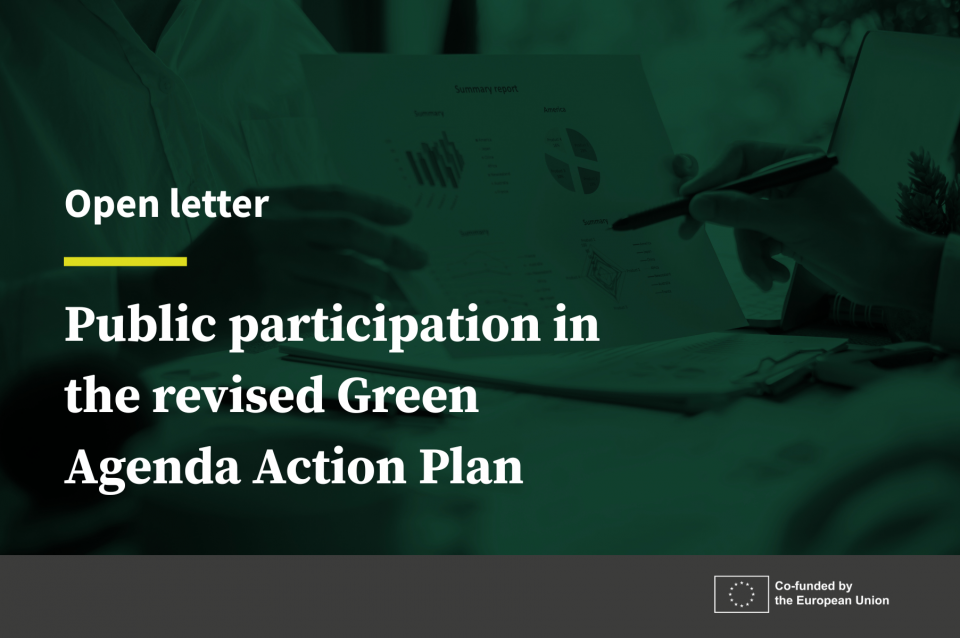A group of civil society organizations sent a letter to the Regional Cooperation Council (RCC) regarding the lack of public consultations on the Draft Revised Action Plan of the Green Agenda for the Western Balkans, which is expected to be adopted at the Summit in Dubrovnik on October 14–15, 2025.
The aim of the letter is to request more detailed information from the RCC about the activities implemented so far under the Green Agenda for the Western Balkans, as well as to present their plans for 2026.
Civil society emphasizes that the revision of the Action Plan was an opportunity to create a more focused and clearer document with defined responsibilities, steps, and deadlines, as well as clear progress indicators. The process should also help rebuild trust between the RCC and civil society organizations, which was undermined during the development of the first Action Plan in 2021, when organizations were given only seven days to provide comments on the entire document.
Although an early consultation process for the preparation of the Revised Action Plan was held in April 2025, it was limited in scope and did not include the full document, such as roadmaps, governance mechanisms, and indicators. The RCC did not accept civil society’s proposals for a more flexible consultation format.
Civil society organizations warn that this situation undermines trust and violates the principles of the UNECE Convention on Access to Information and Public Participation in Decision-Making in Environmental Matters.
The letter requests specific data and plans, in particular:
-
An overview of the EU financial resources planned for the implementation of the Green Agenda by year;
-
Information on the use of funds and achieved results under the previous Action Plan;
-
A detailed plan of RCC activities for 2026;
-
The foreseen steps for the implementation of the Revised Action Plan and the participation of the public in this process.
Read the original letter HERE.
The letter was signed by 52 organizations from the region, and the initiative was launched within the project “Green Agenda Navigator”, co-funded by the European Union. The project is implemented by the Belgrade Open School in cooperation with six regional partners: the Aarhus Centre Association in Bosnia and Herzegovina, the Eco-Tim organization from Montenegro, the Eco-Zone organization from Kosovo*, the Center for Environmental Research and Information Eko-Svest from North Macedonia, the Protection and Preservation of Natural Environment organization from Albania, and the CEE Bankwatch Network .

 381 60 30 65 800
381 60 30 65 800






